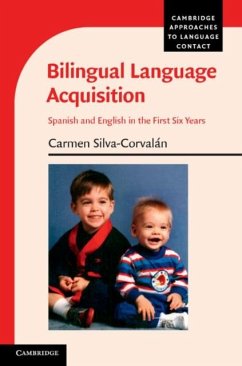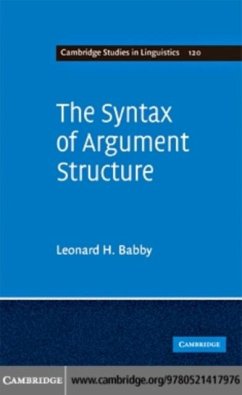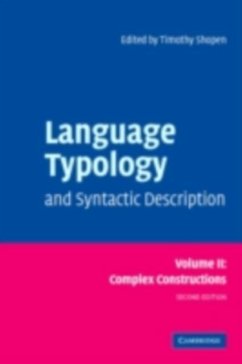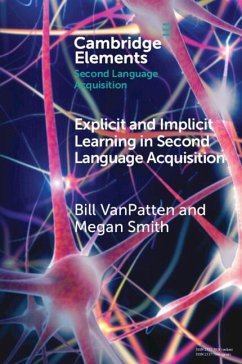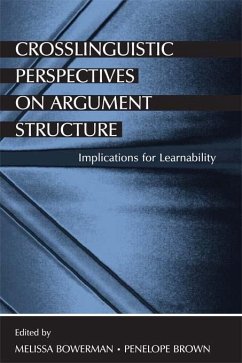
Acquisition of Syntactic Structure (eBook, PDF)
Animacy and Thematic Alignment

PAYBACK Punkte
13 °P sammeln!
This book explains a well-known puzzle that helped catalyze the establishment of generative syntax: how children tease apart the different syntactic structures associated with sentences like John is easy/eager to please. The answer lies in animacy: taking the premise that subjects are animate, the book argues that children can exploit the occurrence of an inanimate subject as a cue to a non-canonical structure, in which that subject is displaced (the book is easy/*eager to read). The author uses evidence from a range of linguistic subfields, including syntactic theory, typology, language proce...
This book explains a well-known puzzle that helped catalyze the establishment of generative syntax: how children tease apart the different syntactic structures associated with sentences like John is easy/eager to please. The answer lies in animacy: taking the premise that subjects are animate, the book argues that children can exploit the occurrence of an inanimate subject as a cue to a non-canonical structure, in which that subject is displaced (the book is easy/*eager to read). The author uses evidence from a range of linguistic subfields, including syntactic theory, typology, language processing, conceptual development, language acquisition, and computational modeling, exposing readers to these different kinds of data in an accessible way. The theoretical claims of the book expand the well-known hypotheses of syntactic and semantic bootstrapping, resulting in greater coverage of the core principles of language acquisition. This is a must-read for researchers in language acquisition, syntax, psycholinguistics and computational linguistics.
Dieser Download kann aus rechtlichen Gründen nur mit Rechnungsadresse in A, B, BG, CY, CZ, D, DK, EW, E, FIN, F, GR, HR, H, IRL, I, LT, L, LR, M, NL, PL, P, R, S, SLO, SK ausgeliefert werden.




